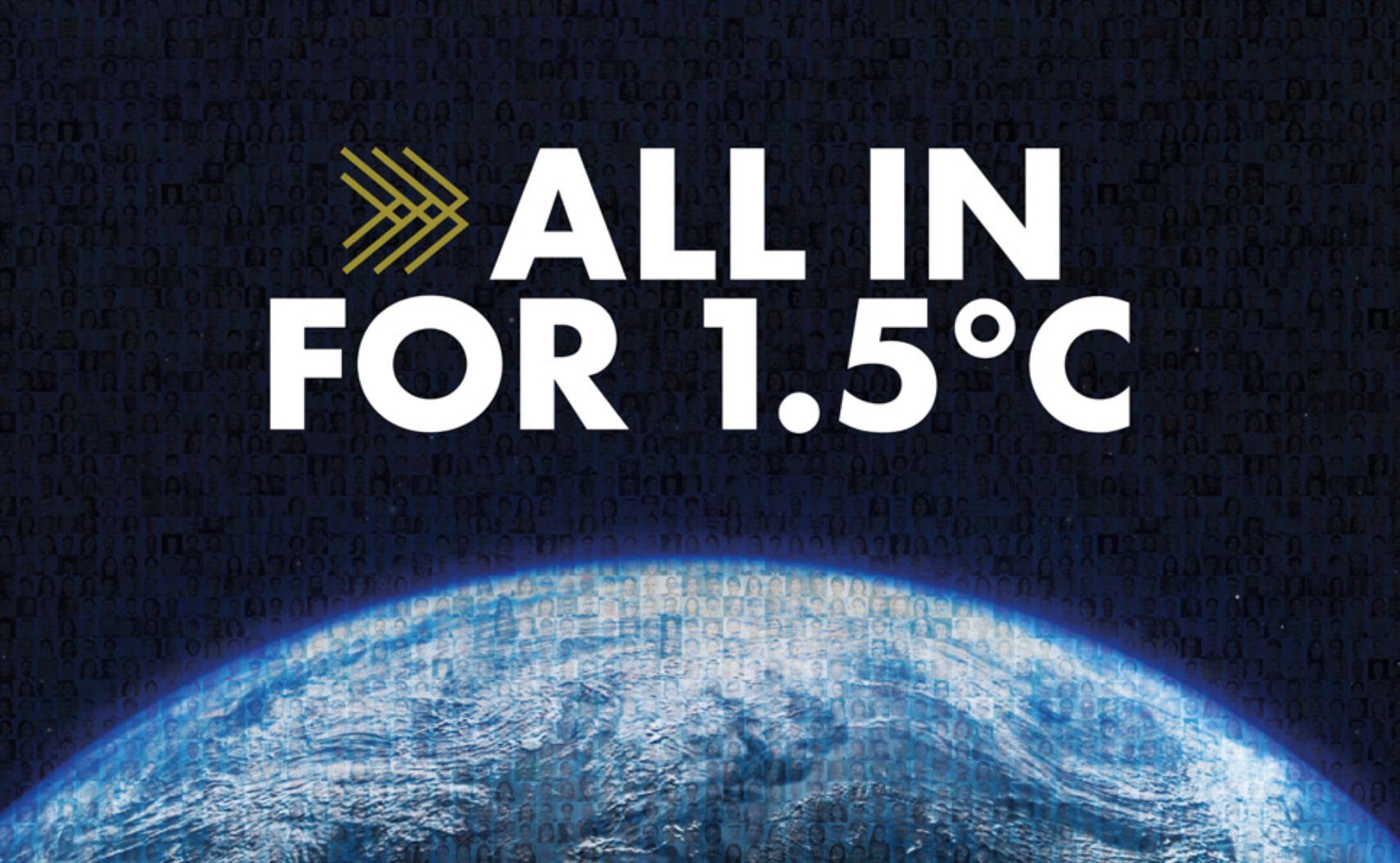COP26: Statement from the We Mean Business Coalition
We Mean Business Coalition
As we approach the critical final stages of COP26, the We Mean Business Coalition is calling on governments to take bold decisions to keep the 1.5°C temperature goal of the Paris Agreement alive, and to ensure a just transition.
Businesses around the world have set ambitious science-based targets, and are investing in climate solutions and disclosing progress toward reducing emissions. They are taking action and going all in for 1.5°C, but can collectively go further and faster within the right enabling environments.
The final COP26 outcome must therefore seize this opportunity by delivering key outcomes to drive concrete implementation this decade with the aim of halving global emissions by 2030. Anything less will simply not be enough to put us on track for 1.5°C. Action this decade must drive sustainable economic growth, build resilience and solidarity, and create new jobs as part of a just transition.
On behalf of forward-looking businesses, the We Mean Business Coalition urgently appeals to national governments at COP26 to:
- Support the science andshow ambition to deliver 1.5°C
The final COP26 decision text must reflect the highest level of ambition needed to stay within what science tells us is required to keep 1.5°C within reach, and to transition to a net-zero global economy by 2050 at the latest. These measures are supported by 778 businesses representing US$2.7 trillion in annual revenue and employing 10 million people, in an open letter to G20 leaders.
We ask for the final COP26 decision texts to:
- Welcome and endorse the findings of recent IPCC reports and reiterate universal commitment to take all necessary action to keep 1.5°C within reach; and
- Urge governments to align policies and finance with a 1.5°C trajectory by securing promised climate finance with an equal balance between adaptation and mitigation, and through measures like carbon pricing, mandatory disclosure of climate-related financial risks, accelerating the phase-out of coal and removing fossil fuel subsidies.
- Show delivery of results and accountability through the GlobalStocktake
The COP26 outcome must call on national governments to focus on concrete implementation this decade. As part of the Global Stocktake, governments should apply the highest level of accountability by showing results against targets, and coming forward with enhanced commitments.
We ask for the final COP26 decision text to urge national governments to:
- Strengthen NDCs (in particular major economies and countries that have not raised ambition) by COP27 in 2022 in line with halving global emissions by 2030 — reflecting and building upon all statements or announcements that governments have made to date;
- Urge all governments to, as soon as possible and no later than 2023, publish long-term strategies for NDC implementation that outline concrete pathways to 2030 and 2050; and
- Finalize rules for the Global Stocktake that are evidence-based, driven by ambition, enhance accountability through reporting, and ensure inclusivity through local government, society and business participation.
- Finalize the rules on Article 6
We strongly urge governments to finalize robust rules on Article 6 of the Paris Agreement relating to the use of market-based instruments. These rules must uphold the highest level of environmental integrity and enable the 1.5°C ambition in a cost-effective manner.
We ask governments at COP26 to:
- Agree strong rules to implement Article 6, allowing for higher ambition in NDCs, which is needed to achieve the 1.5°C goal and incentivize business investment in cost-effective emission reductions;
- Ensure that the Article 6 rules prevent the double counting of emissions reductions and enable the transfer of mitigation outcomes between Parties’ NDCs to maximize cost efficiency and support additional mitigation action.
- Support meaningful carbon pricing policies to reflect the full costs of climate change and drive clean technology innovation and investment in emission reductions, as part of a broader mix of policy instruments.

